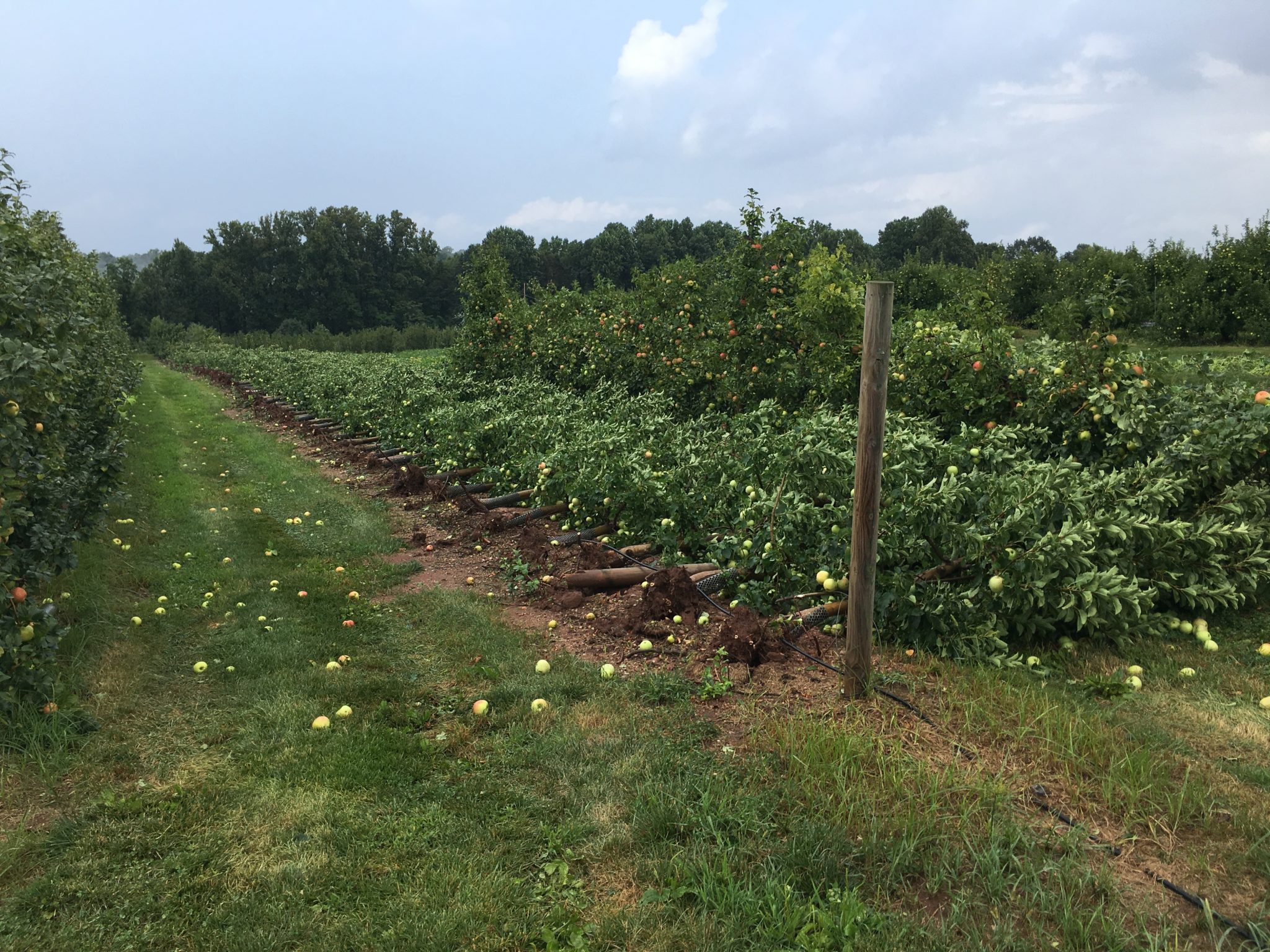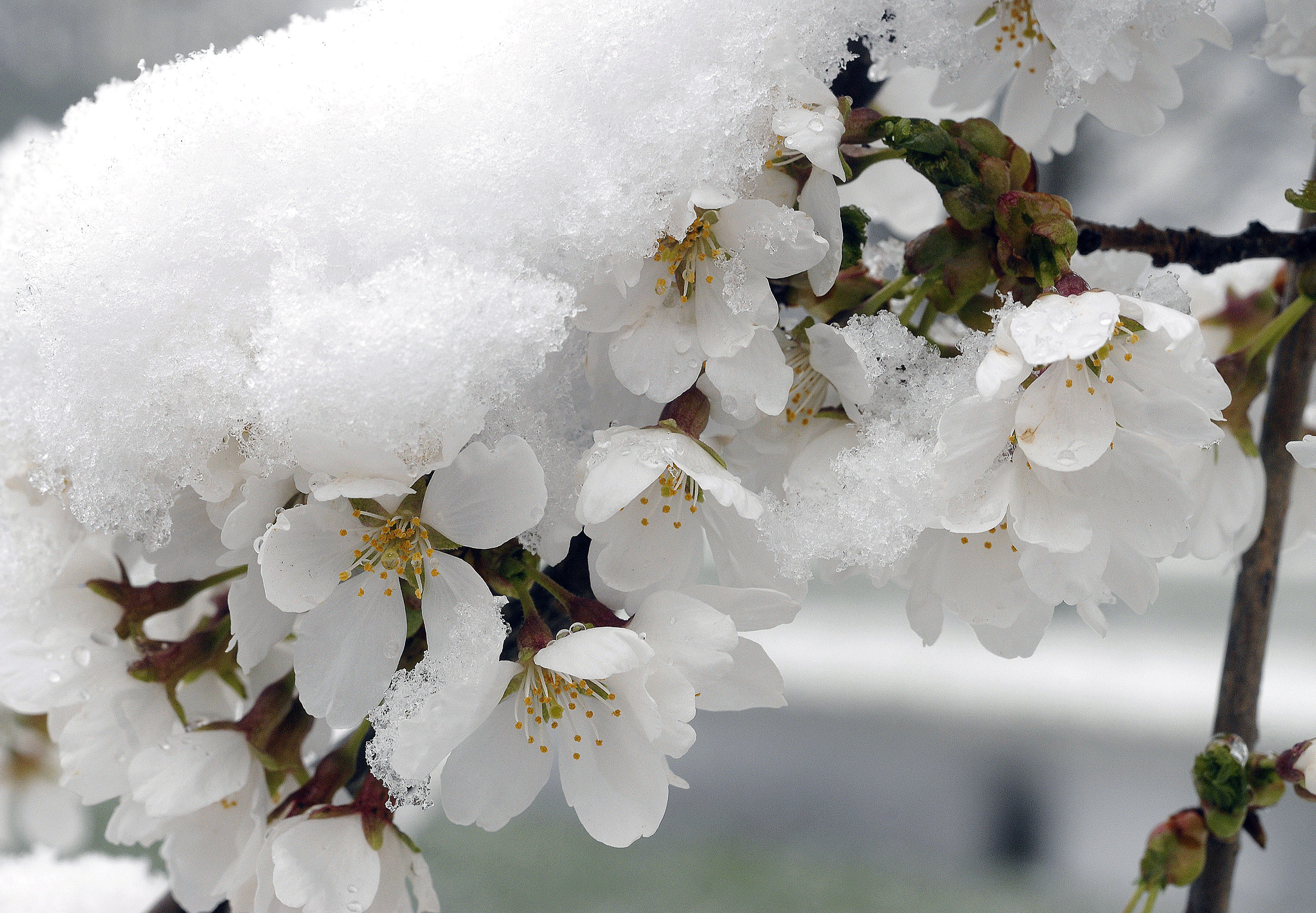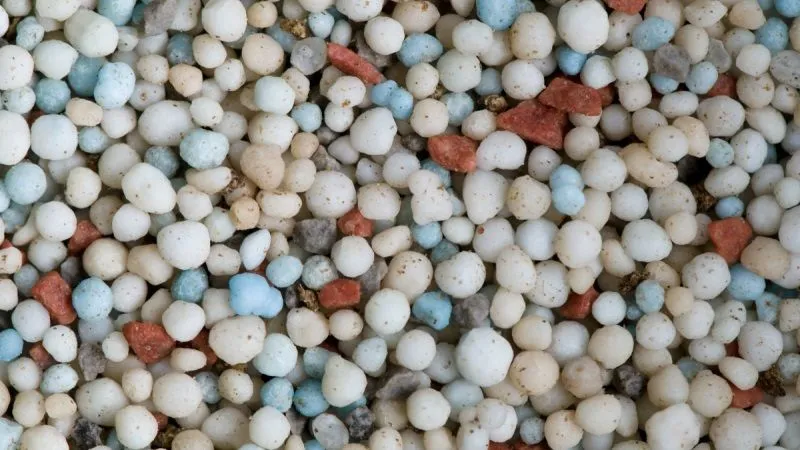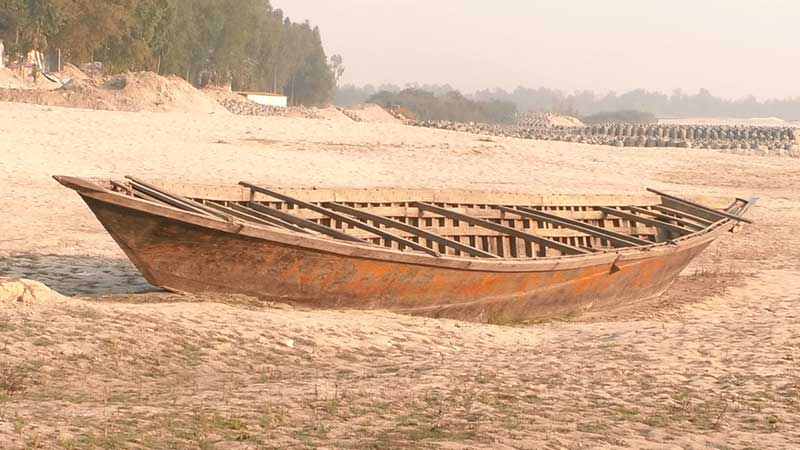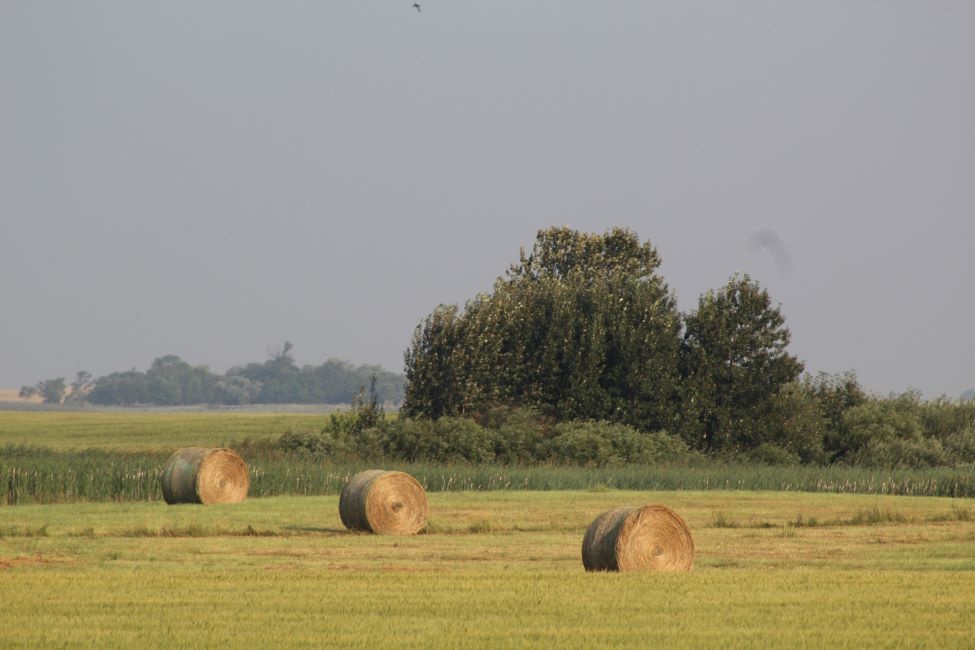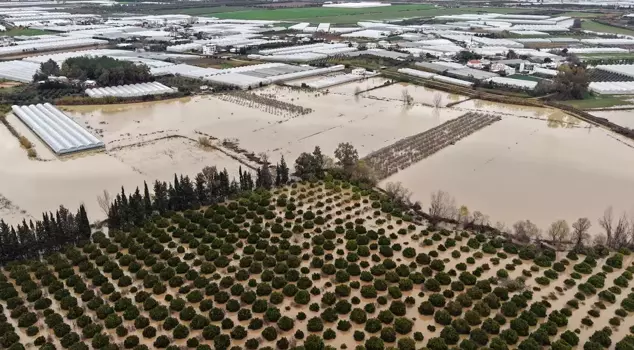This weekend, the principality of Asturias was hit by bad weather. It snowed, the rivers grew, and there were floods. In Pravia, the heavy rains and the overflowing of the Nalon river have affected the KiwiNatur company's kiwi harvest, which is currently in the middle of the harvesting season.
Tatiana Perez, head of human resources at the Asturian firm, said the river had overflowed on Thursday night. It did not affect the fruit but, as every year, the water washed away a side of the plantation and part of its material, she added. Fearing that the heavy rains announced for this weekend would spoil the harvesting season, they have doubled down their collection work to try to save the fruit. "Yesterday, the fields were not flooded but there was water throughout the entire farm and we could not harvest the fruit. Today we had to double the workforce, from 40 workers to 80 workers." "The weather forecast wasn't good and there is a threat of overflow, so we worked really hard in these two days to try to save as much fruit as possible," Perez stated.
The kiwi harvest season begins in mid-November and lasts for 10-15 days. Fortunately, these floods arrived at the end of the month.
The overflow caused by the intense rains has soiled the plots, affecting part of the fruit, and has uprooted some 50 trees in the Forcinas and Santianes fields, where Kiwinatur has 14 and 16 hectares of kiwi plantations, respectively. This dirt causes what is known as "black fruit", which is the fruit that is found in the lower part of the trees and that must be treated to eliminate any affectation caused by the water, generating extra costs to the company, Perez said.
He also lamented that they had to face the same circumstances each year. The Nalón and Narcea river converge in that area of the Pravia council, which usually suffers floods at this time of year. The company has asked the Cantabrian Hydraulic Confederation to clean the river bank to alleviate the effects when these rains occur. "They don't let us do anything, but they don't do anything to prevent it either. Every year the river flows out and affects the plantations to a greater or lesser extent. The only thing we can do is pray that it doesn't rain too much and when it happens, speed up the harvest," stated Perez. The company has decided to denounce the body responsible for the rivers that flow into the Cantabrian Sea.
Source - https://www.freshplaza.com


